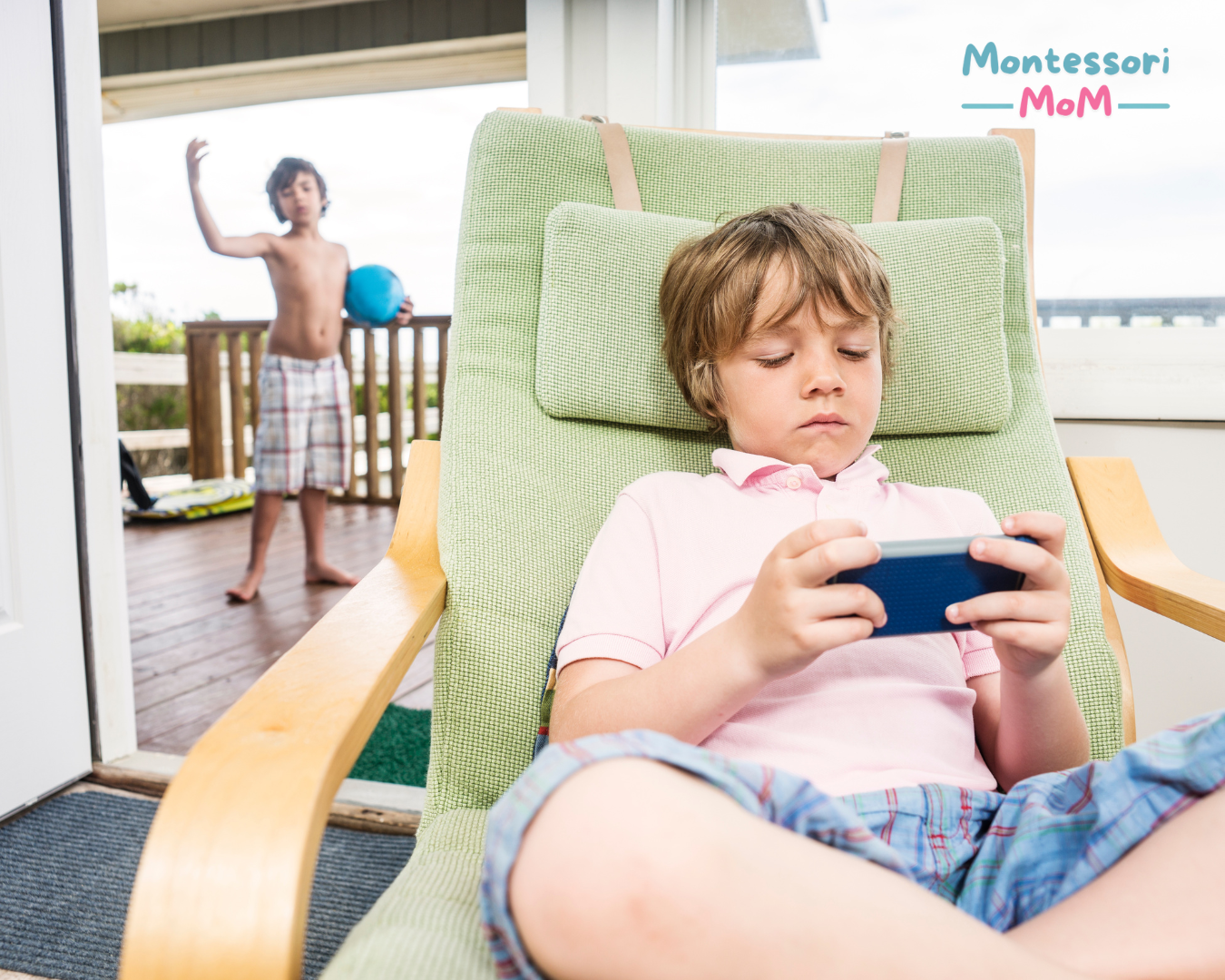5 Signs Screen Time Is Draining Your Child’s Energy
And what to do about it

When Screen Time Starts to Take Its Toll
In today’s digital age, screens are an unavoidable part of life. From educational apps to video games and social media, children are more plugged in than ever before. While some screen time can be beneficial, especially for learning and entertainment, there’s a tipping point where too much screen time can start to take its toll—often in ways that are subtle but significant.
Have you noticed your child’s bright, curious eyes giving way to blank stares? Or perhaps they’ve become more irritable, less engaged, or harder to reach emotionally? These could be signs that screen time is starting to overtake their well-being. In this article, we’ll explore five subtle yet serious signs that your child is overdoing screen time and what you can do to bring back their bright eyes and lively spirit.
- The Loss of Spark: Blank Stares and Diminished Expression
What to Look For:
- One of the first signs that a child is spending too much time on screens is a noticeable change in their expression. What used to be bright, curious eyes full of life may now appear dull and vacant. This “blank stare” is often a result of cognitive overload and emotional desensitization, where the child’s brain becomes so accustomed to screen-based stimulation that real-world interactions seem less engaging.
Why It Matters:
- This lack of expression and emotional engagement can be a red flag for parents. It suggests that the child may be losing interest in non-digital activities and interactions, which are crucial for healthy emotional and social development.
What You Can Do:
- Encourage more screen-free activities that stimulate creativity and real-world engagement. Simple activities like drawing, reading together, or playing outside can help rekindle your child’s natural curiosity and bring back that spark in their eyes.
- Increased Irritability and Mood Swings
What to Look For:
Another subtle sign of excessive screen time is increased irritability or sudden mood swings. You might notice that your child becomes easily frustrated, especially when it’s time to turn off the screens
- They may also display signs of anxiety or restlessness when they’re not using their devices.
Why It Matters:
- Irritability and mood swings can indicate that the child is becoming dependent on the constant stimulation provided by screens. This dependency can interfere with their ability to manage emotions and cope with boredom in healthy ways.
What You Can Do:
- Set clear boundaries around screen time and stick to them. It’s important to establish a routine that includes plenty of screen-free time to help your child develop better emotional regulation. Gradually reducing screen time can also help ease the transition and reduce dependency.
- Difficulty Focusing on Non-Digital Tasks
What to Look For:
- Children who spend too much time on screens often struggle to focus on tasks that don’t involve digital devices. Whether it’s homework, chores, or even playing with toys, you might notice that your child has a shorter attention span and gets distracted easily when not using a screen.
Why It Matters:
- The constant, fast-paced stimulation provided by screens can condition the brain to crave similar levels of engagement in all activities, making it harder for children to focus on slower, more methodical tasks. This can impact their academic performance and overall cognitive development.
What You Can Do:
- Introduce screen-free periods during the day where your child is encouraged to engage in activities that require focus and patience. Puzzles, building blocks, and reading are great alternatives that can help improve their attention span over time.
- Social Withdrawal and Decreased Interest in Interacting with Others
What to Look For:
- If your child is spending too much time on screens, they may start to withdraw from social activities, showing less interest in playing with friends or engaging in family conversations. They might prefer to be alone with their devices rather than interacting with others.
Why It Matters:
- Social interaction is essential for developing communication skills, empathy, and emotional intelligence. When screen time replaces these interactions, children may struggle with forming and maintaining relationships, leading to social isolation.
What You Can Do:
- Encourage and facilitate opportunities for social interaction, whether it’s through playdates, family activities, or team sports. Limiting screen time during social events and promoting face-to-face communication can help your child reconnect with the people around them.
- Changes in Sleep Patterns and Fatigue
What to Look For:
- Excessive screen time, especially before bed, can disrupt your child’s sleep patterns. If your child is having trouble falling asleep, waking up frequently during the night, or seems tired during the day, screen time might be to blame. The blue light emitted by screens can interfere with the production of melatonin, the hormone that regulates sleep.
Why It Matters:
- Poor sleep can lead to a host of other problems, including decreased concentration, irritability, and a weakened immune system. Over time, chronic sleep deprivation can have serious consequences for your child’s health and well-being.
What You Can Do:
- Implement a screen-free bedtime routine that begins at least an hour before sleep. This can include calming activities like reading a book, taking a warm bath, or practicing mindfulness exercises. Creating a consistent sleep schedule and ensuring the bedroom is a screen-free zone can also improve sleep quality.
Bringing Back the Bright Eyes
Recognizing the subtle signs that your child is overdoing screen time is the first step in helping them regain their emotional and cognitive well-being. By reducing screen time and encouraging more screen-free activities, you can help bring back the bright eyes and lively spirit that screens may have dulled.
To support this transition, download our guide:
Bedtime Detox & Connect Plan for Busy Moms.
This plan provides you with a simple step-by-step guide to creating your own effective bedtime routine designed to transform bedtime chaos into calm. By following these steps, you can reduce screen time tantrums, improve your child’s behavior, and strengthen your parent-child bond.
Inside, you’ll find a clear, step-by-step instructions with engaging activities and practical tips to help you create a peaceful, screen-free evening. Let’s get started and make bedtime a time of tranquility and connection.





